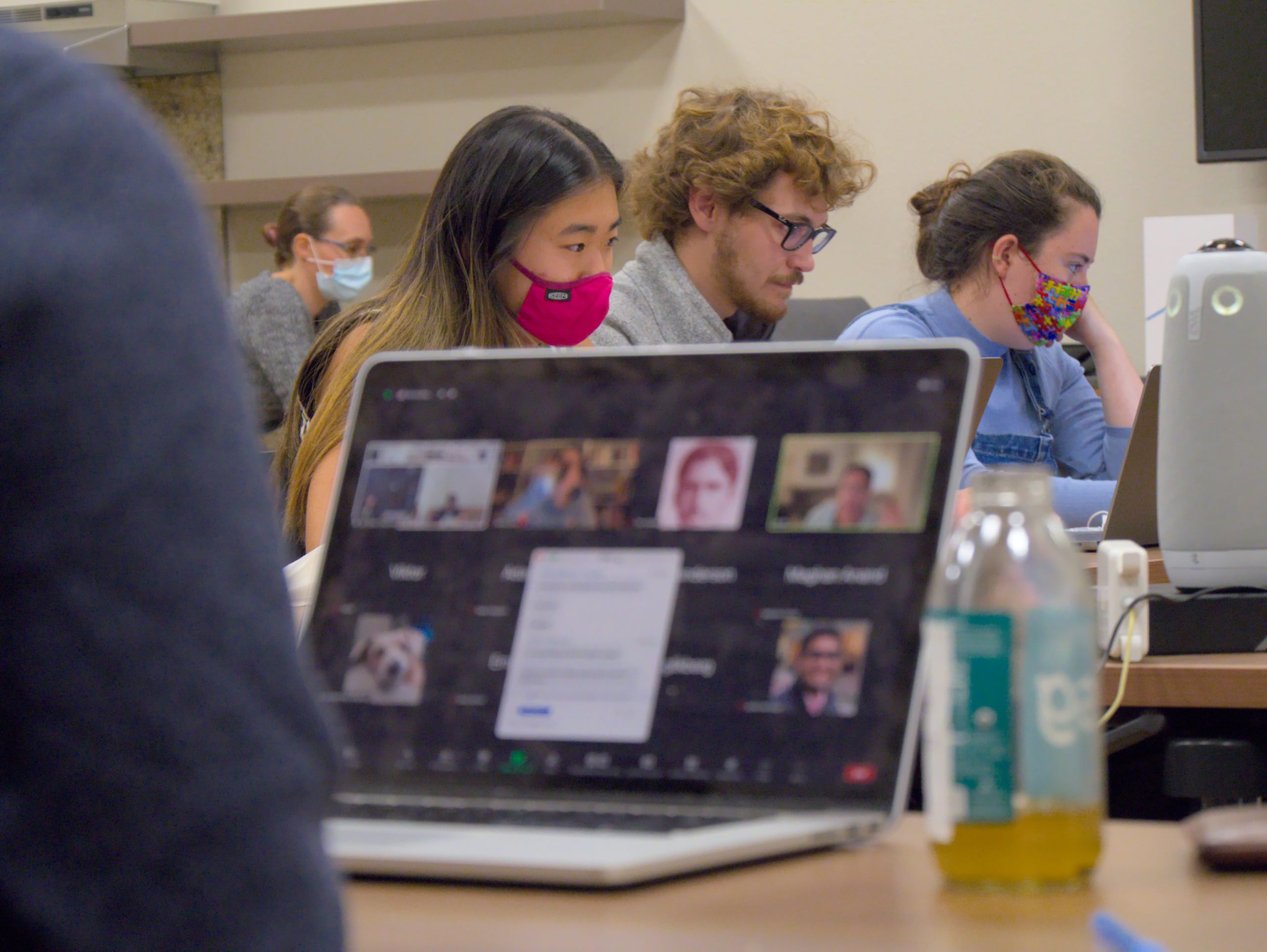As graduate student life organizers have resumed in-person event planning, many have run into an unexpected obstacle: a 2003 Santa Clara County noise ordinance that prohibits amplified noise after 10 p.m. The University’s enforcement of the ordinance, which graduate students say they did not experience until this year, is posing a significant barrier to graduate student social life, according to students.
The most recent casualty of the renewed noise ordinance — which some graduate students described as unnecessary and asymmetrically enforced — was the annual Rains Halloween party, a graduate student tradition that was canceled this year.
But struggles with graduate student social life started well before the Halloween party cancellation. Even as social restrictions related to COVID-19 have gradually relaxed, graduate students say they have experienced significant difficulties with organizing outdoor parties in partnership with University administration due to both Stanford’s new alcohol policy and enforcement of the noise ordinance.
The county ordinance under scrutiny prohibits amplified noise after 10 p.m. and has not changed or been enforced on campus in the 18 years since it was implemented, according to Graduate Student Council (GSC) representative Tim Vrakas ’21 M.S. ’22, who is also a member of The Daily’s Board of Directors.
But according to Joe Kaczorowski, the Assistant Director and Program Supervisor of the Substance Use Programs, Education and Resources (SUPER) office, the ordinance has been enforced in the past “to ensure that outdoor, amplified sound ends at 10 p.m., by SUDPS, RDs [Residence Deans] or GLO [Graduate Life Office] Deans, when they were called for noise complaints.”
Kaczorowski added that the University has “worked closely with Row houses, graduate groups, and undergraduate groups to ensure that they are able to host their events without being in conflict with the ordinance,” but that there are “instances when these efforts are not enough and parties are shut down due to noise complaints, or when organizers cannot come up with alternative plans to be in compliance with the ordinance and the party cannot be held.”
Some graduate students have seen campus security or police shut down their parties, citing violations of the noise ordinance. Brian Christopher Dobkowski M.S. ’22 is one of them.
“I have experienced parties being broken up early for no apparent reason, just talking to some fellow students in a circle at a volume which I would not consider amplified by any means,” Dobkowski said. “Parties are one of the primary ways for grad students to meet and bond with people. I think it would be a disappointment to hinder that form of the Stanford experience without strong justification.”
Students who are familiar with the ordinance have also expressed doubts regarding the enforcement. “Generally noise is measured from the nearest neighboring property, but Stanford is all one block of property,” Vrakas said, raising the question of whether the noise ordinance should even apply within Stanford’s campus.
Some graduate students have also called enforcement of the ordinance “demoralizing” and “hypocritical.”
“Many graduate students are full adults,” said Joan Eleanor O’Bryan, a fourth-year political science Ph.D. candidate and third-year Community Associate (CA). “They had careers before they came here, and to be told that we can’t have parties after 10 p.m. is, frankly, infantilizing. Whether or not we can have an event after 10 p.m. actually looms very large, because they represent the total control Stanford has over the shapes of our lives.”
The majority of Stanford graduate students make campus their permanent residence, meaning that campus is their primary space to engage in social life and build personal and professional connections. Yet graduate students said they feel that their social life is being restricted more so than for other groups on campus.
“Anyone who lives in proximity to the Row knows that events do not end at 10 p.m.,” Vrakas said.
According to Kaczorowski, all organizations, “whether undergrad or grad,” that are registering parties “are required to read the party planning guide and complete a short test to prove that they understand and have learned the content.” He added that the guide “includes a section on the noise ordinance and university policy.”
Though CAs were informed of the noise policy in September, there has still been no grad-wide communication from the University to residents about the ordinance or its enforcement, according to O’Bryan.
“This is not good for student-administrative relations,” O’Bryan said. “Our deans do a really good job of trying to support us, and they are being put in the unenviable position of enforcing a policy that the students see as unreasonable, and that is unjustified by the University.”
Chloe Glikbarg ’21 M.S. ’22 also drew attention to the alumni reunion events that took place between Sept. 22 and Sept. 24, which graduate students feel demonstrate a stark contrast to the enforcement they have experienced. Glikbarg said that it was “particularly frustrating” to observe “the Alumni Weekend folks throw huge outdoor parties right next to grad residences.”
“How come they can and we cannot?” she added.
In response to the student complaints, University spokesperson Pat Harris wrote that the University seeks “to enforce all requirements fairly,” adding that “amplified sound ended at 10 p.m. at most locations” at the alumni gatherings.
But student concerns about the University’s policies extend beyond complaints about fair treatment.
O’Bryan said she has heard numerous complaints from fellow grad students that the current rule encourages unsafe behavior, as “students either host events indoors or are forced to go out to a wider community and engage there,” she said.
This article has been updated to reflect that Joan O’Bryan was speaking in her capacity as a student, not as a CA. The Daily regrets this error.
